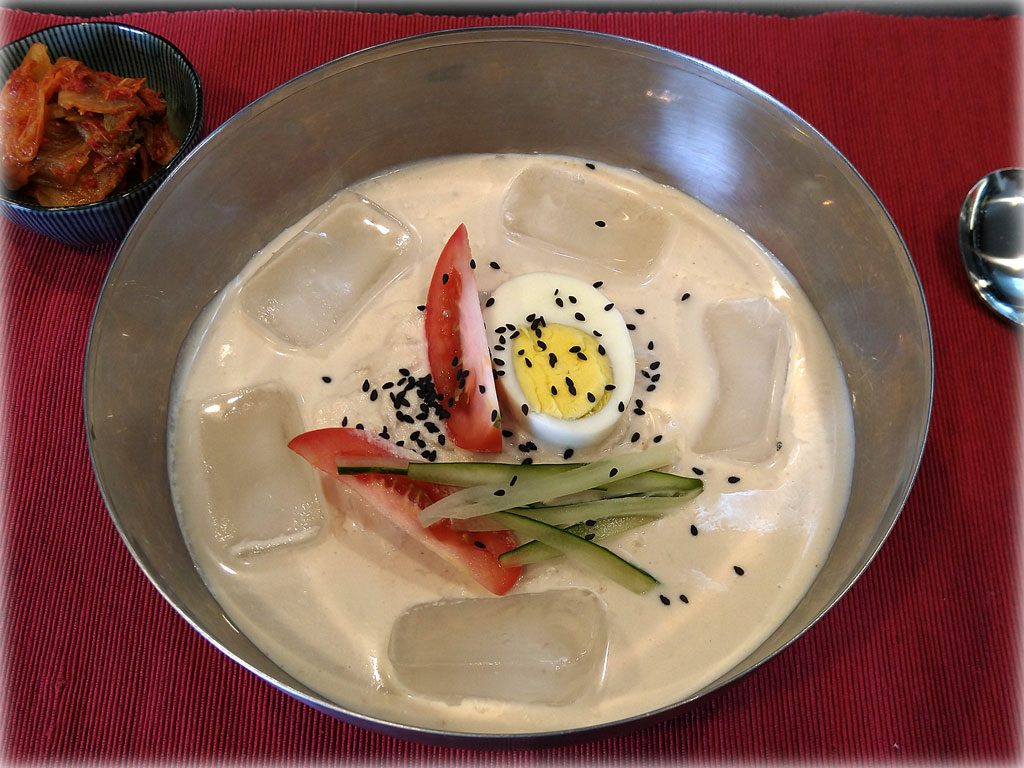
KongGukSu (콩국수) is Korean cold noodles using a soybean broth. Traditionally, SoMyeon/Somen (소면) Korean wheat noodles are used. These are thin noodles that are easy to cook.
The traditional KongGukSu also requires soy beans. Typically, this means rinsing, boiling and blending whole soy beans in a long, involved process. Tofu is basically the same thing. It’s cheap and readily available, so we’re going to use it here.
This is also a great recipe for anyone wondering what to make with tofu. The resulting broth is rich and creamy, so you don’t have to worry about people not liking the unique texture of tofu, which can be hit-or-miss for some palates. These Korean cold noodles are quick and easy to make.
Korean Cold Noodles – Video Recipe
Click on the video below to follow along or scroll past to view the ingredient list and directions.
Help support us. Scroll down for more content.
Ingredients
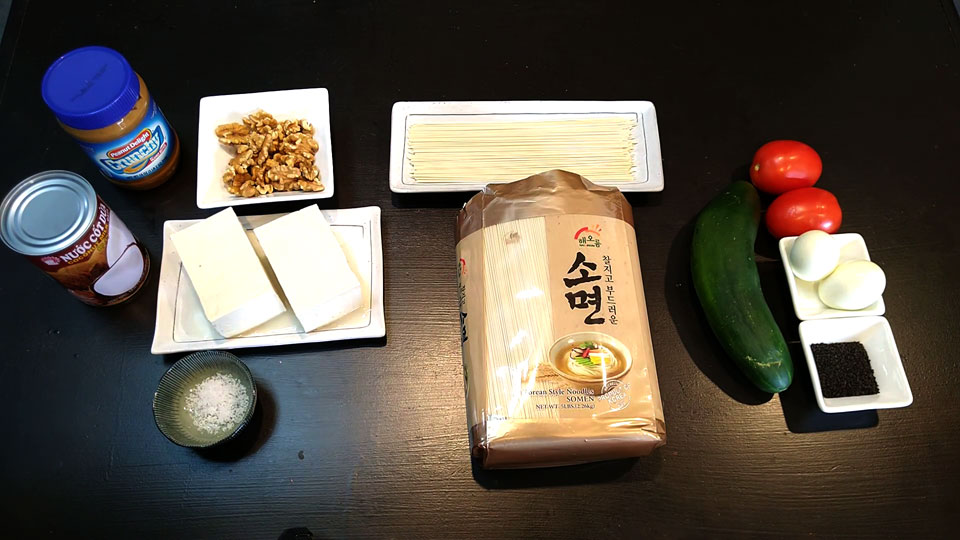
- Noodles:
- Broth:
- 1 block tofu (medium or firm)
- 1~2 cups Milk – Soy, Almond or Coconut Milk
- ½ teaspoon Salt
- (Optional) 1~2 Tablespoons Peanut or Almond Butter
- (Optional) – Crushed Almonds, Walnuts and/or Sesame Seeds
- Garnish:
- Hard-boiled egg
- Tomato (Roma or Cherry)
- Cucumber
- Roasted Sesame Seeds
Directions
Noodle Preparation
- For 1~2 servings, grab noodles in your hand and measure 1~2 cm / ¾-inch diameter in your hand.
- Bring a quart of water to boil and add noodles. Start timer and cook on low boil for 3~4 minutes.
- Stir occasionally to prevent noodles from sticking.
- In a colander, rinse noodles and set aside to drain for a few minutes.
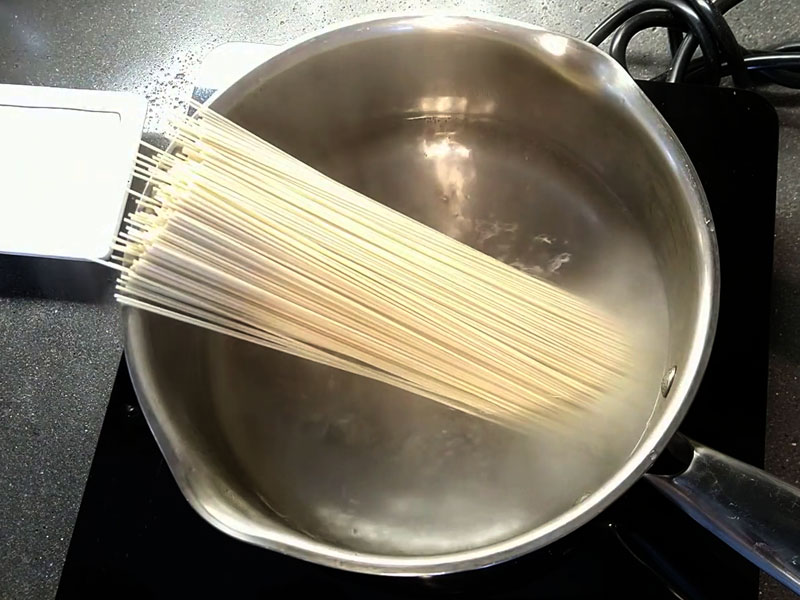
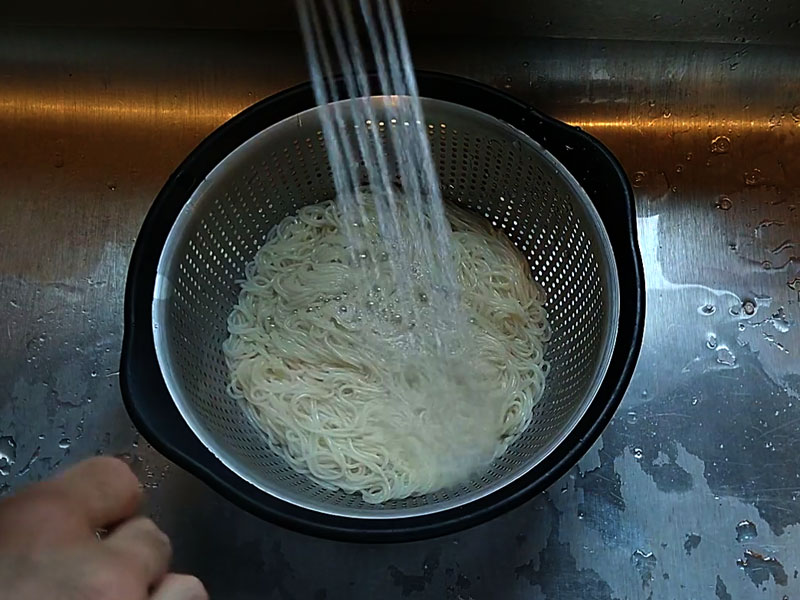
Soy Bean Broth
- In a blender, combine tofu, salt and milk/water. Add optional nuts and/or nut butter.
- Blend and check consistency and flavor. Add milk/water if needed to make broth on the runny side.
Add salt to taste
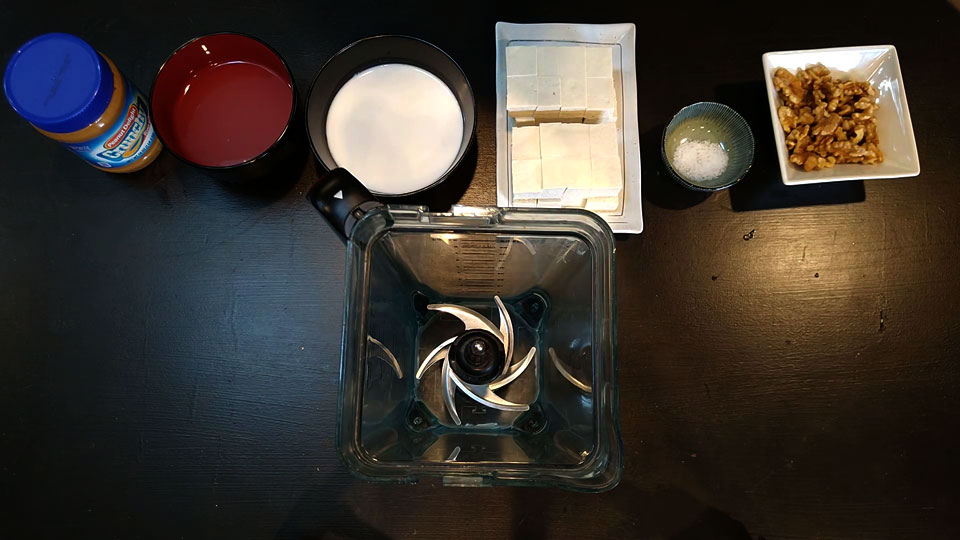
Garnish
- Cucumber:
- Cut a block of cucumber.
- Slice into the side and roll the cucumber to cut into a thin sheet
- Slice the sheet of cucumber into thin slices
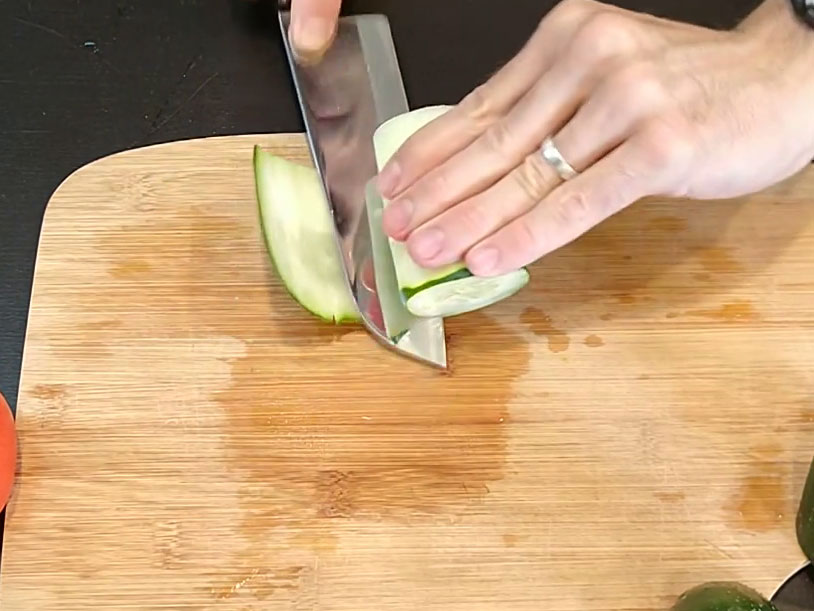
- Tomato – Slice tomatoes into thin slices
- Hardboiled egg – Slice in half lengthwise
- Place noodles in serving bowl,
- Pour soy bean broth over noodles,
- Place cucumber slices, tomato slices and a slice of hard-boiled egg over noodles.
- Sprinkle roasted sesame seeds over dish,
- Add a few ice cubes to broth and serve.
Serving
Be sure to view the video to make the recipe easier to follow. We hope it turns out tasty. Let us know how it turns out in the comments.
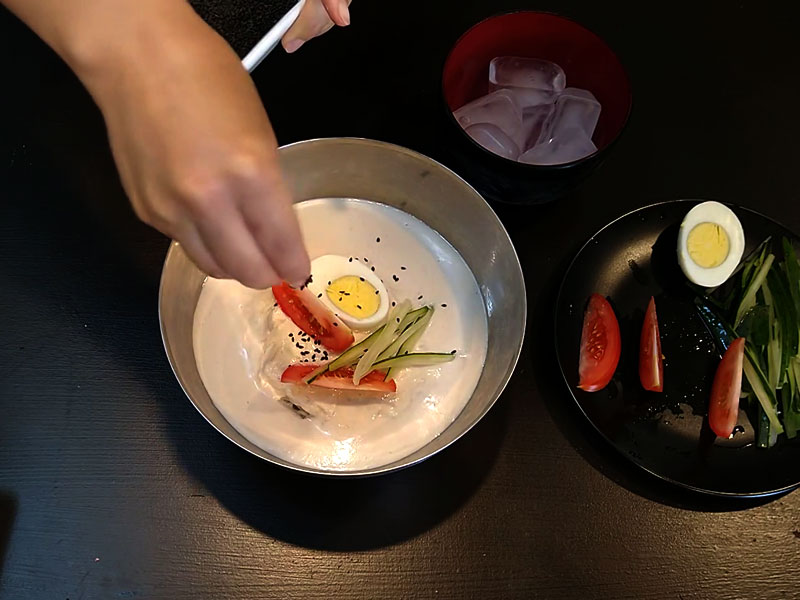
If you want to learn how to make other Korean dishes visit our main page at Yorihey.com.